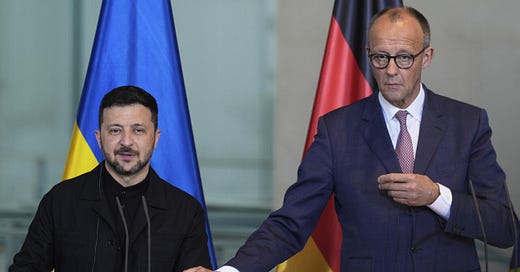European Support For Ukraine Remains Solid and Germany Is Stepping Up
In this week’s Europe Dispatch, Minna Ålander looks at fresh Europe-wide polling data on support for Ukraine and feels cautiously optimistic about Germany’s new moves on Ukraine.
Hi Everyone,
I was very sorry to mi…
Keep reading with a 7-day free trial
Subscribe to Phillips’s Newsletter to keep reading this post and get 7 days of free access to the full post archives.


